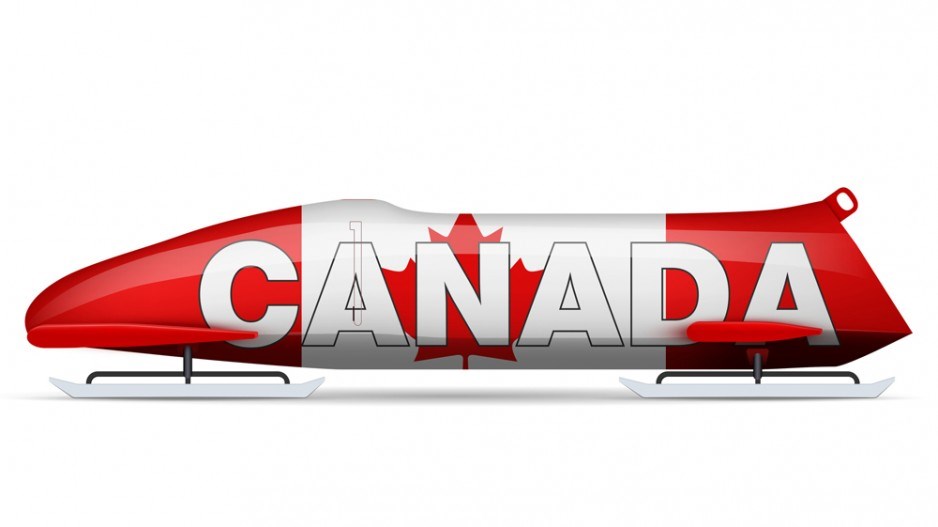The federal sport minister has ordered an audit of Bobsleigh Canada Skeleton (BCS) after athletes bristled at the organization’s plan to hire a third-party mediator.
A second open letter from 87 athletes on March 21 called BCS’s proposal a band-aid solution that would not solve the “physical, mental, emotional, and financial suffering as a result of BCS’s organizational failures.”
“We continue to believe that BCS is not able to move forward to address the athlete concerns in a positive or productive manner with the current leadership, and once again recommend that at the very least, the board president/acting CEO [Sarah Storey] and high-performance director [Chris Le Bihan] are placed on leave until this process is complete,” said the open letter, which did not name the athletes.
One of the Olympic-level athletes, who asked not to be identified for fear of losing funding, said in an interview that mediation will not fix the “structural integrity issues” at BCS.
“The last eight years, we've exhausted every internal mechanism that has been afforded to us,” the slider said.
Federal sport minister Pascale St-Onge responded by using her power to fast-track a regular Sport Canada audit of BCS to ensure compliance with all terms of its federal contribution agreement, including financial and governance.
During the fiscal year ended March 31, 2021, $2.35 million of BCS’s $3.4 million budget came from Sport Canada. Only $249,000 was from sponsors and donors. When Vancouver hosted the Games in 2010, BCS reported $804,000 in sponsorship.
St-Onge said the government is also working to establish, by end of spring, an independent reporting process through the Sport Dispute Resolution Centre of Canada that would be mandatory for all federally funded national sports organizations.
‘’Let me be clear: there is no place for harassment, abuse, discrimination, or maltreatment in sports. I want to recognize the courage of the athletes who have come forward,” St-Onge said in a statement.
The first letter on March 14 came two weeks after the 21-member Team Canada left the Beijing Olympics with only two bronze medals. Two-time Canadian Olympic gold medalist Kaillie Humphries slid to her first gold for the United States in the new monobob event. She quit the Canadian team in 2019 due to a coach’s verbal and mental abuse.
BCS spokesman Chris Dornan said Storey was not available for an interview, but sent a statement from the board that acknowledged receipt of the two letters and plans to improve. “We believe that constructive dialogue and a clear action plan will bring about positive change,” said the statement.
Storey responded to athletes after the March 14 letter to say that BCS, with Own the Podium support, would engage an independent, third-party mediator to convene meetings with athletes and other stakeholders, including board, management and funding agencies. The process is in addition to routine post-Olympic debriefs.
Frustration with Storey’s leadership had been festering since her election. The lawyer had been the vice-president who helped draft a new version of BCS bylaws in 2013 and was accused of using those new rules to win the presidency in 2014. Storey is also the BCS acting chief executive, despite the Canadian Sport Governance Code stating that no board member should become CEO or interim CEO during their term as a director.
A rival for the presidency in 2014 filed a whistleblower complaint to the Canadian Olympic Committee, which inadvertently shared the complaint with Storey. Rita Vathje had asked the COC to keep her name confidential to protect her daughter, national skeleton team member Elisabeth Maier, from retribution.
Vathje alleged that “by unregulated, unregistered voting membership in the Ontario provincial Bobsleigh Skeleton Association, president Max Storey cast 196 provincial member proxies (the majority of counted votes) to elect his sister, Sarah Storey president of the BCS.”
The “Fancy Bear” hacking group, affiliated with the Russian government, published the complaint in early 2018. Despite that, Storey was re-elected to another term later that year, unopposed.
Max Storey, an Olympic bid and organizing consultant, was involved in development of sliding centres for the Sochi 2014 and PyeongChang 2018 Olympics.
A national team athlete, who declined to be named, now regrets signing a proxy form in 2014.
“I just trusted in this person that they had my interests in mind. And that, you know, this was just another form to fill out. I didn't realize I was signing my vote away in the sense of being complicit, I guess, in Sarah's takeover.”
Vathje’s complaint also mentioned that elite athletes paid substantial funds to compete in world cup races to qualify for PyeongChang 2018, but Storey had withheld financial information from membership. Vathje declined to be interviewed.
Sarah and Max Storey’s father, Bob Storey, was three-time Canadian bobsleigh Olympian (twice as an athlete, once as a coach), BCS president from 1976 to 1994 and International Bobsleigh and Skeleton Federation president from 1994 to 2010.
In 2018, Sarah Storey withdrew her challenge for the IBSF presidency, citing poor transparency and governance. Ivo Ferriani, who defeated her father in 2010, won a third term.
Bob Storey is also known in the Lower Mainland as the founder of South Fraser Broadcasting, which owned Richmond’s CISL and Z95.3 FM radio stations. He was the chief international strategist for Vancouver’s 2010 Winter Olympics bid. In 2012, longtime International Ice Hockey Federation president and IOC member Rene Fasel said: “Vancouver would not have won the 2010 Olympics without him.”




